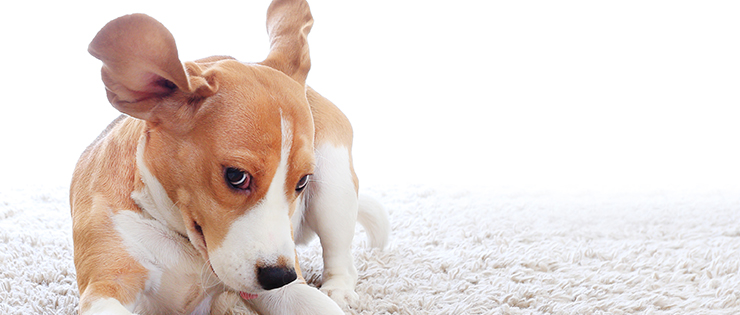
Apologies to anyone eating right now, but today’s topic is about something that is often overlooked by us, until it becomes a health issue for our dogs. And, usually it is not an area that we tend to look at very often! Your dog’s anal glands actually serve a very important biological purpose, and that is to enable them to communicate. The main communicative tool of dogs is scent, and this is usually carried via bodily fluids, such as urine and scent glands. The anal glands release a fluid that has a unique smell to that dog, and allows them to mark territories, notify other’s that they are nearby and even deter potential predators.
For dogs in this day and age, the construct of their lifestyle has changed a lot since their emergence into domestication 30,000 years ago. Nowadays, many dogs come across health issues that otherwise would have been overlooked or been the cause of a shortened life span in the wild. We are very fortune to have modern medicine. Although impacted anal glands can become very painful, and can lead to a nasty infection, they are rarely life threatening. Having said that, they can occasionally be a sign of something more sinister, so modern medicine and regular health checks are essential.
Signs of anal gland disease
Whilst the causes are varied, the most serious is a tumour. Although unlikely, it is always recommended that you seek veterinary attention for your dog, if they are experiencing any of the following signs of anal gland disease:
- Scooting (rubbing bottom along the floor) excessively, particularly if they smell it afterwards.
- Licking at or biting at the area
- Constipation or generalised difficulty in toileting
- A fishy smell on your dog’s rear end, or on furniture where your dog resides
- Gooey/runny discharge of brown, pink, or yellow colouration
- Obvious abscess or infection around the anus
Treatment of anal gland disease
Rest assured that this issue is reasonably common and can usually be managed well without surgery. Smaller dogs are more likely to suffer from impaction as are obese dogs, dogs with allergies or skin sensitivities, older dogs, and dog’s whose fibre intake is minimal. It is well worth increasing the amount of roughage in your dog’s diet, to help improve the efficiency of their digestion and defecation. Also, keep a regular eye on your dog’s habits and any of the early symptoms of discomfort.
Unfortunately, it is a condition that generally needs to be managed long term, particularly if infected and painful. Surgery is sometimes an appropriate option for your dog, although it may not be curative. To confirm that this is indeed the problem your dog is having, you will need to see a vet. They will likely run some tests and observe the area, to see what the issue is. There may be an unobservable underlying cause of the anal gland issue, to which your vet may request an x-ray. Once your vet can confirm that your dog has gland impaction, then they will be able to release the fluid from them. The treatment is usually as simple as this, unless there is an infection, where your dog may need to have the area flushed and could require sedation.
Ongoing management
Regular releasing of the glands is probably recommended, if your dog is unable to do so themselves. If allowed to build up, it simply becomes painful and each time you visit the vet, it can be more and more uncomfortable for your dog. If your dog is overweight, start to manage this, and increase the fibre in your dog’s diet daily, as mentioned previously.
So, continue to watch your dog’s behaviour and act swiftly, if there are symptoms of distress. Learning how to prevent the issue makes it far less problematic long term and helps improve your dog’s overall wellbeing, not to mention your hip pocket by reducing the constant visits to your trusted vet.